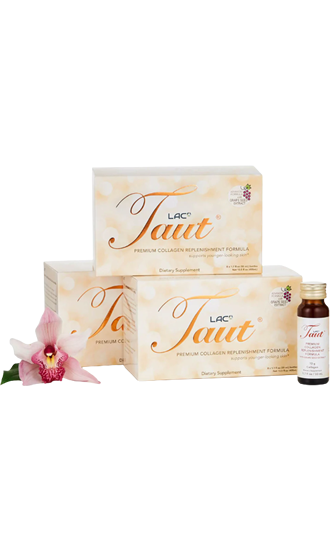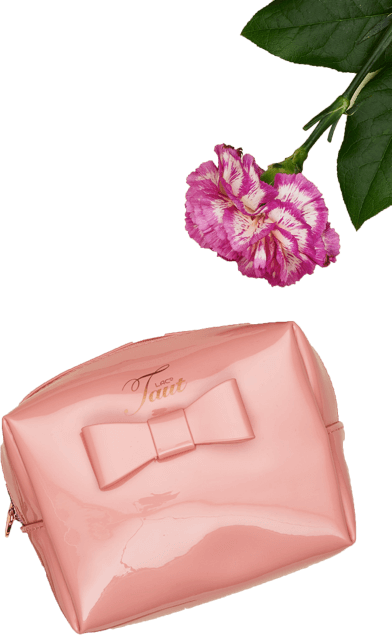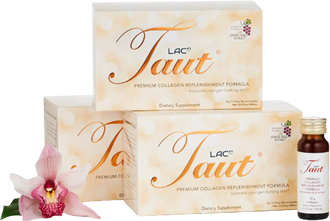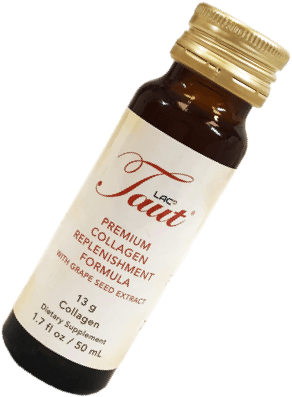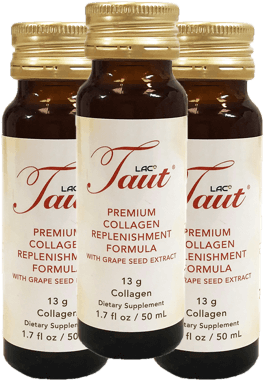Type 1 Collagen: What Is Its Function & Structure & Where Is It Found?
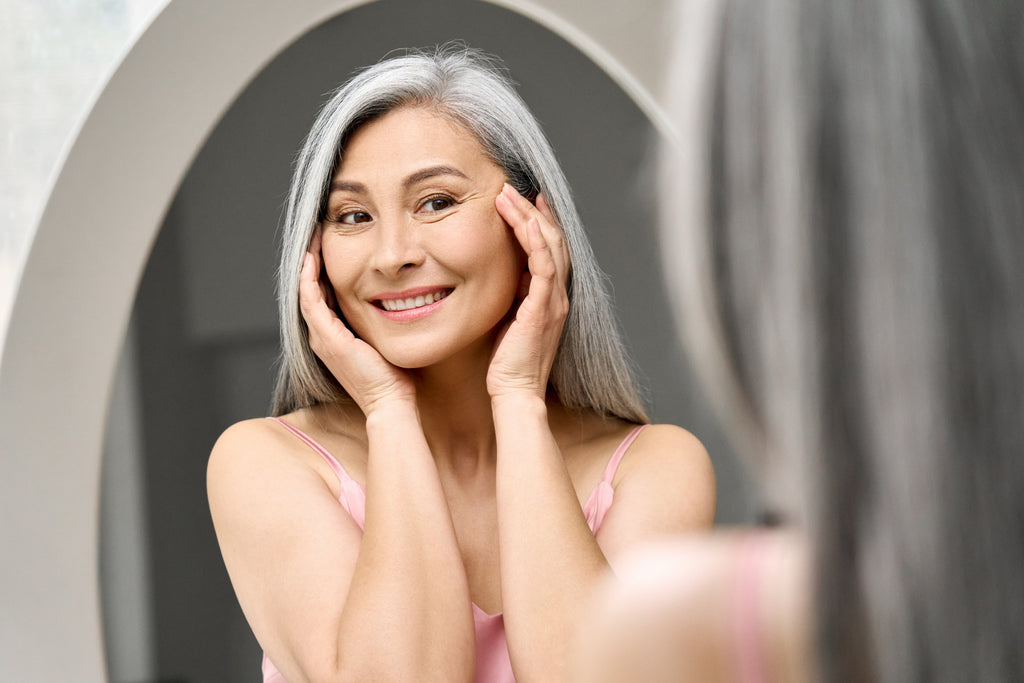
If there is one thing we would tell our younger selves about, it’s this: It’s never too early to start taking care of your skin!
One of the biggest regrets that we have as we get older is not taking better care of our skin when we were younger. While there’s nothing wrong with having a few wrinkles here and there, it’s almost common knowledge at this point that collagen is what keeps our skin looking taut, healthy, and youthful.
The truth is, it’s never too early or too late to start taking care of your skin. That’s why women and men of all ages have turned to serious skin care products and supplements that are packed with collagen to age gracefully.
Of course, it’s important to have the right products in order to get the results we want. It may come as a surprise that not all collagen supplements will help us achieve the health and beauty benefits we’re looking for. We need to pay attention to what type of collagen we’re taking in order to make the most of our collagen supplements. Indeed, the collagen supplements that are labeled to improve your joints won’t necessarily tighten and smooth your skin.
Truth be told, there are many different types of collagen throughout our body, but one in particular has been shown to reverse signs of aging, improve skin elasticity, and increase hydration within the skin and that is type 1 collagen!
Want to learn more about this miracle protein? We’ve got you covered. Keep reading and you’ll find out everything you need to know and more about collagen type I.
What Is Collagen?
Collagen is the most abundant protein in the body. Our skin, connective tissues, bone tissue, tendons, joints, nails, and other tissues all depend on collagen to give them their shape, structure, and functionality. That means that we can thank collagen for our ability to do pretty much everything!
What makes collagen? The collagen protein is made up of amino acids, specifically glycine, proline, and hydroxyproline. On a molecular level, these amino acids are bound together into a triple helix and the triple helical shape is what makes collagen molecules incredibly strong and resilient.
How Is Collagen Made?
Our bodies produce collagen on their own. Collagen synthesis, the process of producing collagen, happens in specialized cells called fibroblasts. Inside our fibroblasts, amino acids are formed together to make collagen chains, known as procollagen. Then, these collagen chains are linked together to form a triple helix. After forming a triple helix, the procollagen molecules are secreted from our fibroblasts into the extracellular space (the area outside the cell).
Outside of our fibroblasts, the procollagen molecules bond together with other pro-collagen molecules to make collagen fibrils. Once they become collagen fibrils, they bond with other collagen fibrils to form fibers called collagen fibers or “mature collagen,” the strongest form of collagen.
After procollagen becomes collagen fibers, they are finally able to be used by our tissues. This is because collagen fibers have incredible tensile strength and are able to withstand being stretched. You can think of collagen fibers as tiny little ropes that hold your connective tissue together.
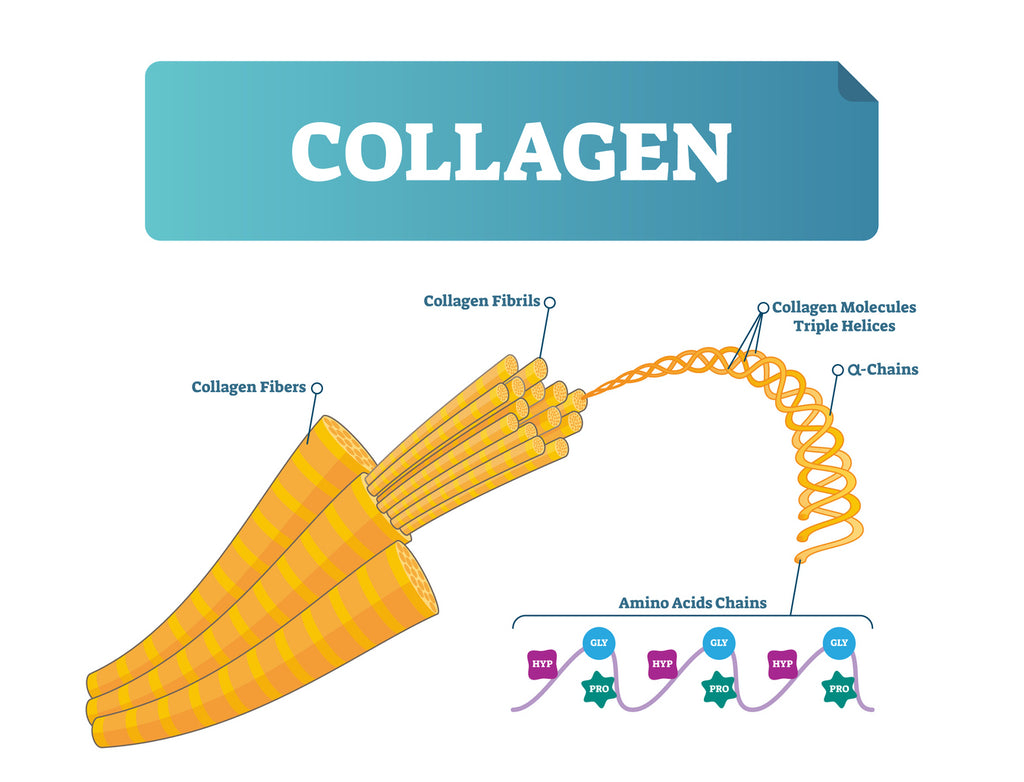
What Are the Different Collagen Types?
There isn’t just one type of collagen. As a matter of fact, there are 28 different types of collagen, and each one plays a slightly different role in the body. But, out of all 28 collagen types, there are four main types that make up the majority of all of the collagen protein in the body. The four main types are:
- Type II - While collagen type II isn’t as prevalent in the human body as type I collagen, it is a major component in the health and function of our bones, cartilage, and joints. Collagen type II supplements are used to improve symptoms of osteoarthritis, and other types of muscle and joint pain. 1, 2
- Type III - This type of collagen is mostly found in the reticular fibers of the human body, like bone tissue and marrow. You can usually find type III collagen paired with type I collagen in places like our skin, blood vessels, lungs, and gut.
- Type V - This form of collagen plays a functional role in supporting the production of collagen fibrils and collagen fibers of both type I collagen and type III collagen. Type V collagen is made up of three polypeptide chains, making it a fibrillar collagen. As a fibrillar collagen, it creates collagen fibers that support the structure of our connective tissue. You can find type V collagen in the bone matrix and the extracellular matrix of our muscles, liver, and lungs. 3
What Is Collagen Type 1?
There’s a reason why this form of collagen is number 1. As we mentioned above, collagen is the most abundant protein in the body and type I collagen is the most commonly found form of collagen throughout our various connective tissues. “Where is type 1 collagen found exactly?”, you may be wondering. Type I collagen is abundant in our skin, bones, tendons, joints, and other connective tissues. In fact, type I collagen makes up to 90% of the organic matrix of our skin, bone tissue, ligaments, and connective tissue.
Besides providing structure and strength to our tissues, you can think of it as the glue that keeps our bodies together. For example, collagen type I makes up the calcified tissue layer that covers the roots of our teeth and keeps them intact to our jaw. Collagen type I is also essential when it comes to cell migration, tissue remodeling, and wound healing.
But, what is type 1 collagen and what makes it different from other collagen triple-helical molecules? While all collagen starts as pro-collagen molecules with three chains, type I collagen is made up of two pro-a1(I) chains and one pro-a2(I) chain. 4
In the endoplasmic reticulum (the area of the cell that produces protein), the pro-collagen type I molecules go through a series of post-translational modifications, or adjustments, including glycosylation of lysine residues and other adjustments that can alter the triple-helical shape, and ultimately, the mechanical properties of the collagen type I molecule. This process is what differentiates collagen type I from other types of collagen. 5
After the post-translational modifications are complete and other matrix components are bound to the type I collagen molecule, extracellular matrix to find other collagen type I molecules. Eventually, collagen type I molecules join together by cross-linking with other collagen type I molecules to make stable fibrils, and eventually collagen fibers.
Health Conditions Related to Type I Collagen (Impact On Connective Tissue)
If you had any doubt about how big of a role collagen type I plays in the body, here are a few health conditions and syndromes that have been linked to collagen type I molecules that were mutated or not formed properly.
Type I collagen molecules contain the amino acid glycine. As a matter of fact, the glycine residues are what characterize each and every one of the triple-helical regions of the pro-collagen molecules. These glycine residues are what bind the two collagen chains, giving the collagen molecule its triple helix shape.
Mutations of glycine residue and lysine residues can disrupt the triple-helical shape, causing abnormal collagen molecules which can impact the mechanical properties of the collagen type I molecule. In simple terms, if you end up with a collagen molecule with a wonky triple helix, it can’t perform its duties in the body. So, if a triple helix is not formed correctly, you may start seeing issues in your bones, joints, and other tissues.
One health condition that is characterized by mutations to the triple-helical collagen protein is Ehlers-Danlos syndrome. This genetic disorder of the connective tissue is often associated with both collagen degradation and bone degradation. 6
Another one of the more common issues that is caused by mutations in the COL1A1 gene and the CRTAP gene (where the cartilage-associated protein is encoded) is osteogenesis imperfecta. There are several types of mutations in the COL1A1 collagen gene, some of which can cause severe forms of osteogenesis imperfecta. These mutations can even delete entire portions of the DNA of the collagen type I gene, resulting in unstable collagen type I molecules. People with osteogenesis imperfecta may experience symptoms like brittle bones, a curved spine, loose joints, and skin that bruises easily.
Issues with the COL1A1 collagen gene can also cause infantile cortical hyperostosis, otherwise known as Caffey disease. People with this condition are prone to swelling in their soft tissues, such as their muscles, and an increase in new bone formation, also known as hyperostosis. Excessive bone formation can occur in areas like the jawbone, arms, legs, and collarbones. Generally, people with Caffey disease also suffer from pain and swelling, but these symptoms can go away within a couple of months.
Finally, health issues like fibrosis and fibrogenesis are also related to the mutations in the triple helices of collagen type I.
The Function of Collagen Type I in the Skin
Naturally, the collagen type I that is in your skin is a little bit different from the collagen type I that is in your bone. Ultimately, the type 1 collagen function has to do with the interactions it has with the other proteins in your tissues. For example, type 1 collagen in your bones allows proteins to bind and create hydroxyapatite crystals, which are the molecules that crystallize to make our bones and teeth hard and rigid. 7
In our skin, type I collagen forms a network of tough, yet incredibly light fibers that are stronger than steel but still allow movement and mobility. You can think of type I collagen as a pair of shapewear—flexible, yet sturdy enough to keep everything in place without breaking.
Why Do We Need Collagen Molecules?
If collagen is the “glue” that keeps us together, how come we need to take it as a supplement?
As we get older, our bodies start to produce less and less collagen type I along with the other types of collagen. Starting in our thirties and throughout our forties and fifties, our collagen levels take a big hit. And, for women in particular, collagen type I levels take a nose-dive duringmenopause.
Aside from normal collagen loss during the aging process, other factors can cause our collagen levels to drop. Things like stress, sun exposure, smoking, environmental toxins, and a bad diet can all have an impact on our collagen levels in one way or another. For example, sun exposure, smoking, and environmental toxins can expose us to an overabundance of free radical molecules, unstable atoms that latch onto your healthy tissues and damage your cells. These molecules can cause a whole host of problems like autoimmune and inflammatory disorders, accelerated aging, degenerative diseases, and cancer. Learn the free radicals definition by RenewSkin Inc. 8
Fortunately, supplementing type I collagen can help replenish our natural collagen levels. Type I collagen even has natural antioxidant properties, which can combat the effects of excess free radicals to keep our tissues healthy. 9
Don’t believe us? Trust the science! One study showed that supplementing with hydrolyzed type I collagen could help increase bone mineral density and slow down bone loss as we get older. And, a few studies have shown that taking collagen supplements can help minimize fine lines, increase our skin’s collagen density, and improve skin hydration. 10, 11, 12, 13
The second best thing you can do to help support your collagen levels is take a powerful antioxidant supplement, like LAC Masquelier’s French Pine Bark. Antioxidants neutralize excess free radicals by giving them some of their own electrons, preventing free radical accumulation and cellular damage.
The antioxidants in this vegan, gluten-free, and GMO-free supplement are significantly more effective than vitamin E and 20 times more effective than vitamin C. Along with its impressive ability to reduce free radical accumulation, this pine bark extract benefits our blood vessels, keeping them strong, open, and supple. This is incredibly important since as we get older, our vessels can get stiff or become blocked, meaning they can’t function as they once could.
By keeping our vessels healthy, oxygen and other essential nutrients are able to flow to the organs that need them the most. Supporting proper blood circulation also means that harmful toxins and other types of waste can harmlessly flow out of our bloodstream.
Some of the benefits that you’ll start to notice after taking 1 to 2 tablets daily are a reduction in wrinkles, improved skin suppleness and quality, improved eye health, stronger immune system, and other anti-aging, antibacterial, antiviral, anti-inflammatory, anti-allergic, and anti-carcinogenic properties.
Supporting Type I Collagen Levels (Skin, Bone Tissue, & Connective Tissues)
To fight natural collagen loss and signs of premature aging, it’s important to support our collagen levels. While it’s also helpful to minimize the things that can harm our collagen levels, like eating sugar-filled processed foods, smoking cigarettes, and laying out in the sun, there are a few things that we can do to naturally boost our collagen levels.
With the help of supplements, collagen-rich foods, and the right skincare products, we accelerate type I collagen production within the dermis and our tissues.
Supplements
One of the most common, and most effective ways to preserve and repair your type I collagen is with collagen supplements. There are plenty of supplements to choose from—pills, gummies, powders, and collagen drinks—but choosing a high-quality collagen supplement can be difficult. To make sure you’re buying a high-quality supplement, you’ll want to do your homework first, especially if you want to see an improvement in skin elasticity and quality.
Before buying a type I collagen supplement, follow these four steps:
1. Check The Ingredients
Don’t judge a book by its cover. There are tons of type I collagen supplements on the market that have stylish, sleek packaging, but also have low-quality ingredients. Some of the most popular brands of collagen supplements contain ingredients that you may be allergic to or unnecessary additives that are not healthy to consume regularly. Some ingredients can even prevent your body from absorbing the collagen molecules properly, rendering them completely useless.
If there are any ingredients that you don’t understand, make sure to research them first and check that they are absolutely necessary for the supplement’s efficacy. Some of the best type I collagen supplements will include a list of things that they are “free from,” including:
- Nuts
- Artificial colorings and preservatives
- GMOs
- Soy, gluten, and wheat
- Lactose and eggs
2. Make Sure It Is Bioavailable
When you buy a type I collagen supplement (or any supplement, for that matter), you should actually get the benefits you’re paying for. One of the biggest factors to consider when shopping for supplements is their bioavailability. Bioavailability refers to how readily available a nutrient is for absorption by the body. 14
Many type I collagen supplements on the market contain collagen molecules that are far too large to be absorbed into the bloodstream. For optimal bioavailability, collagen molecules should go through a process called “hydrolysis.” Through hydrolysis, collagen molecules are broken up into tiny, individual amino acids or ”peptides.” After undergoing this process, collagen type I molecules can get to the job much more quickly and easily. Collagen that has gone through hydrolysis is referred to as hydrolyzed collagen.
3. Find The Source
Taking type I collagen supplements can give you all kinds of benefits, but where the collagen in your supplements comes matters more than you may think. Collagen supplements can come from 4 different animal sources: Bovine, porcine, chicken, and marine. You may see collagen supplements that are labeled as “vegan” or “vegetarian,” but these supplements are not made from naturally sourced collagen since collagen does not exist in plant material.
While bovine collagen, which comes from cows, is one of the most popular forms of collagen because of its beauty and health benefits, it’s not necessarily the best option. Bovine collagen, while recognized as generally safe by the U.S. Food & Drug Administration, has been linked to several issues related to human and environmental health. Since bovine collagen is harvested from cowhides, how the cow was raised and what it was fed plays a big part in how “healthy” the collagen type I supplement is. 15
To avoid any potential issues, it’s best to choose bovine collagen-based supplements that have been sourced from grass-fed or pasture-raised cows. If you can’t find a high-quality bovine collagen product, it’s best to avoid it altogether.
For a more sustainable and effective anti-aging solution, marine collagen is your best option. Type I collagen that has been harvested from the skin and bones of wild-caught fish, has been shown to be a safer and more sustainable option for those looking to get the most out of their type I collagen supplements.
Not only are marine collagen supplements more sustainable, but they’re also more bioavailable than bovine supplements. There is growing evidence that shows that marine collagen can work faster and more efficiently in the body. In fact, marine collagen can be absorbed up to 1.5 times faster than bovine collagen. Its faster absorption rate can be attributed to its lower molecular weight. 16
4. Figure Out The Dosage
When selecting the right collagen type I supplement for you, one of the first things you should do is check the dosage.
Unlike other vitamins and minerals, it’s hard to go overboard when it comes to taking collagen supplements. However, since taking collagen supplements is a relatively new practice, there is limited research as to how many milligrams of collagen is too many. But, you will rarely find collagen supplements on the market that contain over 25,000mg per dose.
What you will find though are supplements that contain small amounts of collagen (as few as 40 mg per dose). And, what we do know about collagen is that you won’t see results if you aren’t taking a sufficient amount. So it’s important to find collagen supplements that contain at least 1,500mg of hydrolyzed peptides.
If you’re taking a collagen supplement to improve your skin’s health, research indicates that taking anywhere from 2,500mg to 10,000mg of collagen type I per day can improve skin elasticity, hydration, roughness, and overall density. 16, 17
Why Choose Taut Collagen Powder?
The best collagen supplements have high-quality ingredients and even higher bioavailability (AKA they actually work!). And, most importantly, they don’t make taking your daily dose a daily chore.
For a quick boost of skin rejuvenation, Taut Collagen Powder is your BFF. This skin-loving superstar is not your average collagen powder, it’s perfect for those of us who want to repair and preserve our youthful good looks, without sacrificing quality and taste.
Formulated with a combination of 1,500mg of hydrolyzed marine collagen peptides and collagen boosters to fight gradual collagen loss. This powdered supplement, which contains 100% collagen type I, helps increase skin density, elasticity, and moisture levels for youthful, healthy skin. It also helps strengthen your hair and nails!
To complement the peptides, this cranberry-flavored premium supplement contains hyaluronic acid (which is made from plants) to deeply hydrate and nourish the skin, and grape seed extract, to protect the layers of the skin at a cellular level from free radicals.
Although it is well known that liquid collagen supplements are more effective than their pill and powder counterparts because their formulas are essentially pre-digested, our collagen peptide powder has a unique formula that stands out among the rest. Each sachet contains a rapid-dissolving powder that can dissolve right on your tongue within seconds, bypassing the digestive process altogether and entering your bloodstream within minutes. This allows the formula to be absorbed more quickly, making for a more efficient and effective anti-aging solution and ensuring that your skin gets all of the benefits from each nutrient.
Foods
Taking collagen type I supplements isn’t the only way to support your skin, joints, connective tissue, bones, and wound healing. Eating collagen-rich foods and other proteins along with taking collagen supplements is key to providing your body with every single amino acid it needs to synthesize new collagen chains.
Which foods can help encourage the production of new collagen type I? One of the most popular (and trendiest) options is bone broth. Collagen bone broth is made by boiling the bones, skin, and connective tissue from animals like cows and beef to extract their minerals and collagen.
While bone broth is now easily available in most supermarkets, you can also make it at home for a fraction of the cost. The only catch is, it’s time-consuming to make. It can take up to 36 hours to make one batch—but trust us, it’s worth it.
Another way to increase your collagen type I consumption is through gelatin. What is gelatin made of? Just like bone broth, it’s made by boiling animal bones.
While consuming gelatin isn’t the best method if you want to erase wrinkles and tighten your skin, it does provide the body with amino acids that can help support collagen production in the body. Who knew that jiggly dessert from your childhood could give you health benefits in adulthood?
How Much Type I Collagen Should You Take Every Day?
It’s normal not to know how much type I collagen to take every day, especially when you’re new to collagen supplements in general. In fact, there is no “one size fits all” amount when it comes to collagen supplements.
The number of grams of collagen type I that you should take will depend on the benefits you’re looking for. And, the number of grams that you need to achieve your health and beauty goals will dictate how much of your collagen supplement you should take (whether it’s a pill, liquid, or powder).
If your goal is to reverse signs of aging like sagging and wrinkles and preserve your skin’s youthful structure, clinical research has shown that taking anywhere from 2.5 to 15 grams of hydrolyzed collagen peptides can be effective. That means that taking a collagen supplement with a high concentration of hydrolyzed peptides, like our Taut Liquid Collagen Drink, can repair damage and ensure that your skin is as youthful and radiant as possible. 19
Every bottle of this fish collagen drink contains 13g of hydrolyzed marine peptides. How are hydrolyzed collagen molecules different from normal collagen molecules? As we mentioned earlier, normal collagen molecules are too large to be absorbed by the body. Hydrolyzed collagen molecules, on the other hand, have undergone a process called “hydrolysis” which breaks down each type I collagen molecule into smaller, more easily absorbable amino acids known as collagen peptides.
When you drink a bottle of this refreshing, delicious orange-flavored drink, the high percentage of nano-sized marine peptides enter your bloodstream within a few minutes. This high concentration of type I collagen peptides is immediately detected by your body which triggers its natural “wound repair” response. As a result, the fibroblasts within the layers of your skin are prompted to super-charge the collagen synthesis process, increasing the skin’s type I collagen density, smoothing out fine lines and wrinkles, and tightening your skin from within.
To support the type I collagen in your skin even further, this collagen drink also contains a melange of other skin-boosting nutrients that fight free radicals and enhance type I collagen production so you can see dramatic anti-aging results.
Let Ms. Magnifique Replenish Your Skin With Type I Collagen
Most of us (if not all of us) want to maximize the longevity of our skin. If we want to see real results, we need to use products that really work. That’s why we developed our Ms. Magnifique Transformation Program, a bundle of some of our most effective anti-aging products to give you the perfect blend of type I collagen peptides and antioxidants for benefits that you’ll love!
This transformation program comes with our most effective and synergistic products, starting with 3 boxes (a 24-day supply) of our ever-so-popular, high-potency Taut Liquid Collagen Drink. Each bottle contains your daily dose of type I collagen and collagen type III which have been sourced from wild-caught red snapper from the Indian Ocean. This extra potent dose of type I collagen tackles sagging skin, fine lines, wrinkles, and other signs of aging, including thinning hair and brittle nails. In as little as three weeks, you will notice more youthful and healthy, glowing skin.
Our collagen drink formula packs much more than just 13,000mg of type I collagen molecules. It also contains 6 skin-supporting active ingredients: Elastin peptides, hyaluronic acid, vitamin C, grape seed extract, ceramides, and vitamin B6. These powerful ingredients work hard to deliver maximum skin rejuvenation results by preventing free radical damage, moisturizing the dermal layers, and brightening your skin from within.
The incredible skin transformation package doesn’t stop there. It also contains 1 box of our Taut Bright Bye Bye Dark Spots antioxidant supplement. This daily skin-loving supplement has a proprietary formula that was developed in Japan to treat hyperpigmentation, fade age spots, and lighten the skin naturally. It contains 5 active ingredients that have been proven by science to improve the health, quality, and appearance of the skin: L-glutathione, L-cysteine, vitamin C, olive leaf extract, artichoke leaf extract, grape seed extract, and alpha-lipoic acid. This combination of powerful antioxidants works to minimize free radical damage, control the excess production of melanin, detoxify our cells, improve wound healing, and stimulate the production of new collagen chains.
Last but certainly not least, Ms. Magnifique contains 1 box of our Taut Collagen Masks. These masks have one goal in mind: To give your skin a quick boost!
The type I collagen essence contains hydrolyzed collagen molecules that are small enough to enter the dermal layer of the skin and minimize signs of aging, loss of collagen, and uneven texture. The mask’s rejuvenating essence is also infused with hyaluronic acid, squalene, and vitamin C to target sagging skin and wrinkles, giving your skin instant rejuvenation.
Supporting your skin with type I collagen is one of the best things you can do to turn back the hands of time. Give our Ms. Magnifique Transformation Program a try to see the anti-aging benefits for yourself!
Want to discover the transformation program that’s best for you and your skin? Take our skin care quiz!
References:
- Type II Collagen
- Collagen Type Ii (Native) - Uses, Side Effects, and More
- Type-V Collagen
- Endoplasmic Reticulum (Smooth)
- What is EDS?
- Definition of Hydroxyapatite
- Free Radicals, Antioxidants in Disease and Health
- Antioxidant and Functional Properties of Collagen Hydrolysates from Spanish Mackerel Skin as Influenced by Average Molecular Weight
- Specific Collagen Peptides Improve Bone Mineral Density and Bone Markers in Postmenopausal Women
- Oral Intake of Specific Bioactive Collagen Peptides Reduces Skin Wrinkles and Increases Dermal Matrix Synthesis
- Oral supplementation of specific collagen peptides has beneficial effects on human skin physiology
- Daily consumption of the collagen supplement Pure Gold Collagen® reduces visible signs of aging
- What Is Bioavailability? How to Make Sure Your Supplements Actually Work
- Bovine Collagen: Benefits & Why You Should Only Use Grass-Fed
- Marine collagen and its derivatives
- Oral Collagen Supplementation: A Systematic Review of Dermatological Applications
- A Collagen Supplement Improves Skin Hydration, Elasticity, Roughness, and Density
- Functional Collagen Peptides Can Be Incorporated into the Diet While Maintaining Amino Acid Balance



